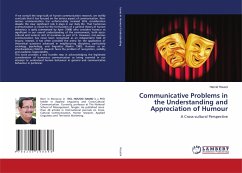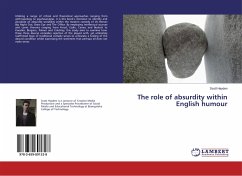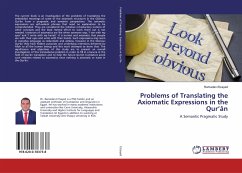
Communicative Problems in the Understanding and Appreciation of Humour
A Cross-cultural Perspective
Versandkostenfrei!
Versandfertig in 6-10 Tagen
38,99 €
inkl. MwSt.

PAYBACK Punkte
19 °P sammeln!
If we consult the large bulk of human communication research, we swiftly conclude that it has focused on the serious aspect of communication. Non-serious communication has unfortunately received little consideration despite the clear significant role it plays in our daily life. That humorous communication is crucial for the formulation of a general theory of human behaviour is aptly summarized by Apte (1988) who considers humour as significant in our overall understanding of the environment, both socio-cultural and natural, and of ourselves as part of it. However, non-serious communication has...
If we consult the large bulk of human communication research, we swiftly conclude that it has focused on the serious aspect of communication. Non-serious communication has unfortunately received little consideration despite the clear significant role it plays in our daily life. That humorous communication is crucial for the formulation of a general theory of human behaviour is aptly summarized by Apte (1988) who considers humour as significant in our overall understanding of the environment, both socio-cultural and natural, and of ourselves as part of it. However, non-serious communication has never been recognized as an independent field of inquiry. Instead, it has often provided the arena for the application of theoretical questions advanced in neighbouring disciplines, particularly sociology, psychology, and linguistics (Raskin 1985). Humour as an interdisciplinary field of research faces the problem of recognition, visibility and academic respectability.This work provides a very humble step in acknowledging the legitimate consideration of humorous communication as being essential in our attempt to understand human behaviour in general and communicative behaviour in particular.












